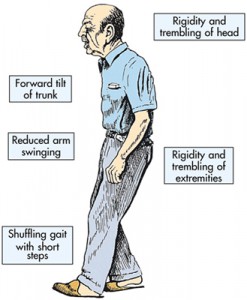Part 4 of 4

Parkinson’s disease prognosis
This is People and Parkinson’s – Part 4 and I will be going through the prognosis of this disease and what the future holds for the sufferers. Click here if you missed Part 1 and here for Part 2. and here for Part 3.
According to research results, indications are that with ample Magnesium (Mg), the brain will be protected from the damaging effects of toxic metals and pesticides. Metals such as aluminium, mercury and lead are undesirable in the brain and will cause damage and cell death. If Mg is low, unwanted metals gain entry into the brain cells. Metals will gain access to the brain much more easily if there is not enough Mg to protect it. Research indicates that this can herald the start of Parkinson’s and Alzheimer’s. It’s interesting to note that with the later stages of PD, dementia is expected. It is also common to misdiagnose dementia for alzeimer’s and visa versa.

 to be a real breakthrough. Levodopa on it’s own will cause vomiting and nausea so the addition of carbidopa is given to stop this problem.
to be a real breakthrough. Levodopa on it’s own will cause vomiting and nausea so the addition of carbidopa is given to stop this problem. usually the first to occur, with people having difficulties in walking and moving around freely. Tremor, shaking and rigidity are other obvious symptoms. Balance is often a problem where there is a tendency to be unstable when standing upright, turning or getting out of a chair. There is definitely an increased risk of falls as the disease progresses.
usually the first to occur, with people having difficulties in walking and moving around freely. Tremor, shaking and rigidity are other obvious symptoms. Balance is often a problem where there is a tendency to be unstable when standing upright, turning or getting out of a chair. There is definitely an increased risk of falls as the disease progresses.